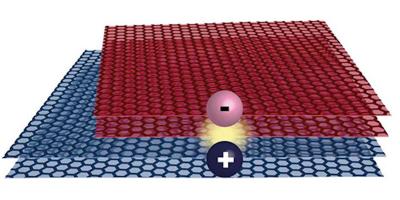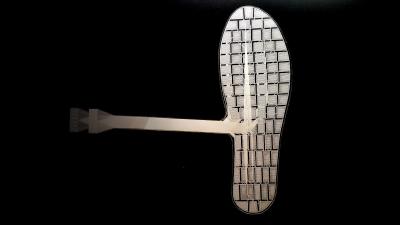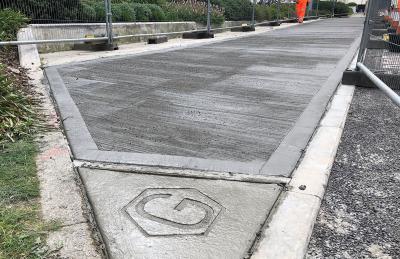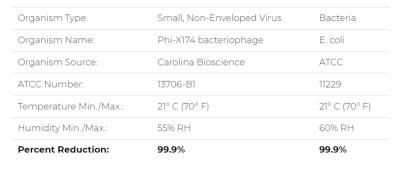Combining graphene transistors with MOFs yields selective and sensitive sensors
Karlsruhe Institute Of Technology (KIT) and Technical University of Darmstadt researchers have developed graphene-enhanced sensors for molecules in the gas phase. The functional principle of this new type of sensors is based on sensitive graphene transistors and tailor-made organometallic coatings. This combination enables selective detection of molecules.
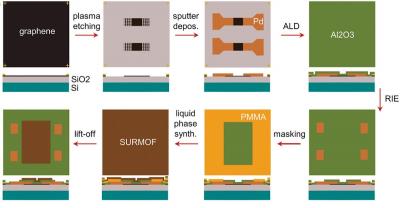 Fabrication of SURMOF/GFET process flow. Image from article
Fabrication of SURMOF/GFET process flow. Image from article
As a prototype, the authors of the new study demonstrated a specific ethanol sensor that, unlike currently available commercial sensors, does not react to other alcohols or moisture.
